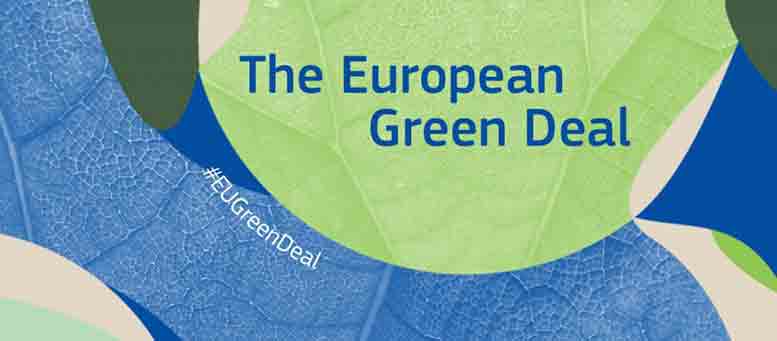Industrial hemp is the perfect source to meet a wide range of goals in the European Green Deal, offering health, environmental and economic benefits that can advance the European Union’s ultimate mission to make Europe climate neutral by 2050.
That’s the proposition in a new paper from the European Industrial Hemp Association (EIHA), “Hemp: A Real Green Deal,” which convincingly presents a case for how hemp can support initiatives under the EU plan that address such things as climate change, industrial and agricultural policy, sustainability and biodiversity.
“Hemp can make a key contribution to upscaling innovative solutions capable of accelerating the transition towards a regenerative growth model that gives back to the planet more than it takes whilst creating many thousands of new green and highly-skilled jobs in rural areas and in manufacturing,” the paper says in an introduction.
Bottlenecks
“Many bottlenecks and hindrances stop hemp from getting the place it deserves in our economies,” the paper suggests, crediting an “underlying distrust” about hemp due to lack of knowledge about the plant. The paper offers a number of proposals for how the EU can support the hemp industry.
Researched and written by Francesco Mirizzi, Senior Policy Advisor at the EIHA, the document highlights hemp’s potential as a multi-purpose crop, its carbon-negative profile as a raw material, its promise in food and health, and the role it can play uplifting rural communities and farmers through environmentally friendly agriculture.
The paper stresses at the outset the need to clarify that the use and marketing of hemp flowers is legal in the European Union, addressing a current situation that threatens the legality of CBD, the most lucrative hemp sector.
Maximizing income
“In order for hemp to be a profitable crop, farmers need to be allowed to maximize the income from all parts of the plant, especially the flowers and leaves,” the paper observes, noting importantly, “the income from the CBD market can help financing the building of processing facilities for fibres and shives, that could be sold at a relatively low cost for industrial uses.”
“We call upon the EU to recognise that hemp falls outside the scope of the United Nations Convention on Narcotic Drugs and allow the harvesting of the whole plant. In parallel, member States should not apply the drug control legislations to industrial hemp and its derived products,” the paper urges.
Detailing potential
Beyond the CBD sector, the EIHA lays out the case for hemp clearly, offering a detailed accounting of the plant’s potential:
- For capturing and storing CO2.
- To deliver benefits for soil; and in phytoremediation – the removal of heavy metals.
- In both leaves and seeds as sources of nutrition and dietary benefits.
- In the growing market for natural and organic cosmetics.
- For transitioning from highly polluting steel and concrete based construction to construction based on hemp.
- In hemp-based alternatives to synthetic plastics and composites.
- To replace highly polluting cotton as the basis for rebuilding Europe’s textile industry.
- As a replacement for wood-based raw material for paper-based products.

